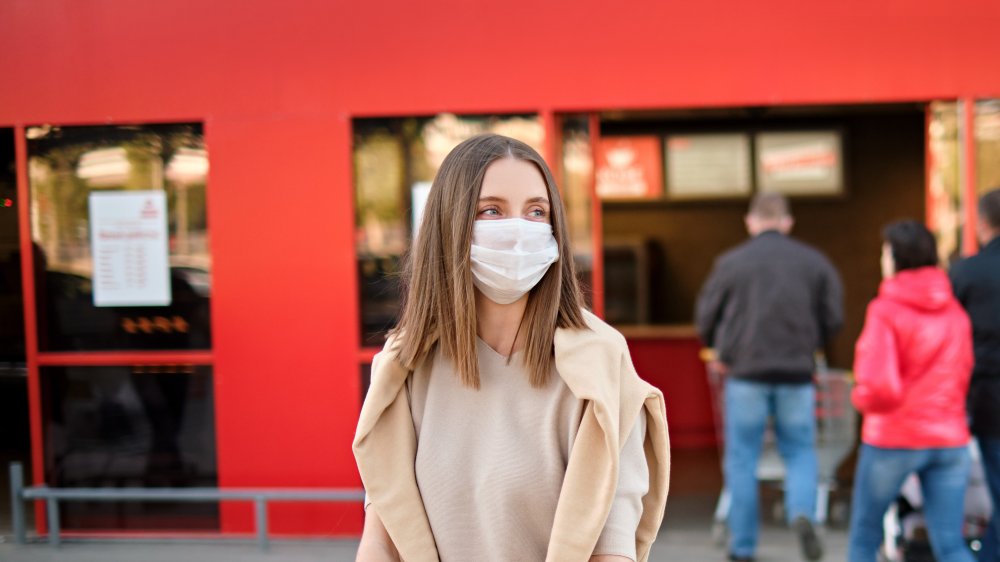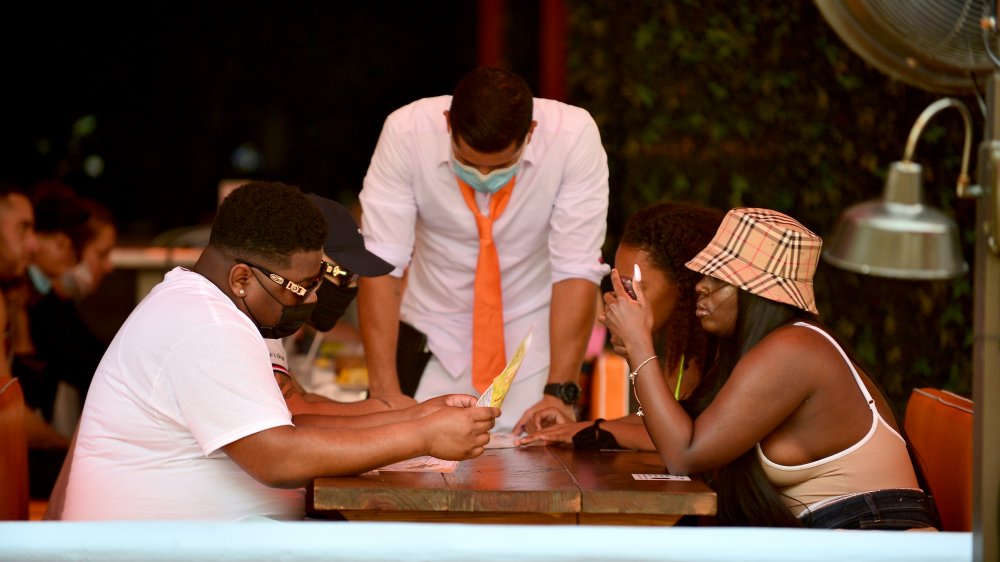The Reason Everyone Is Lying More Right Now
In this time of social distancing, staying at home, and reduced contact between people, would it come as a surprise if we told you that we've found new and more inventive ways to fib than we ever have before? And before you say no, hear us out. "Forget allergy season — it's heightened lying season," celebrity life coach Lauren Zander tells Cosmopolitan. And we're not necessarily lying more, we just have a lot more things to lie about.
"COVID-19 has just given humans a different variety box with new flavors of lies to sample," Zander tells the publication. The latest and greatest pandemic-related collection of falsehoods can include fibbing about sneaking out to run an "essential errand" when we're meant to be staying at home (that one's for you, Mom and Dad!), "forgetting" to wear a mask in public, practicing social distancing by staying away from friends you miss, or inventing a reason to skip out of another video conferencing call owing to Zoom fatigue.
We all tell the occasional lie
Don't worry, we're not becoming dishonest people as a result of the coronavirus. No matter how honest we think we are, statistically speaking, we all spin various falsehoods on a day-to-day basis– even without an ongoing pandemic, according to the Science of People. Really, how many times have you told people you love that you're feeling great when you're feeling low; or maybe you have fobbed off co-workers by telling them you're busy just so you don't have to talk to them.
Psychology Today has even come up with a figure for the number of times we lie a day (men tell 1.93 lies, women tell 1.39 lies). The problem? In an age where we need to be vigilant all the time, a small slip like going out when you live in a town which has been labelled a hotspot comes with unintended consequences.
We tend to lie to avoid confrontation
Psychotherapist Jennifer Pepper explains that some extra lying is occurring at the moment, because people are concerned about the backlash that the truth might trigger. Put simply: It's easier to prevaricate than face a potential confrontation. It's awkward, and you might end up feeling guilty about your actions. "In regards to the pandemic, there are an innumerable amount of new rules to follow, and sometimes those rules are not black-and-white," she says (via Cosmopolitan). So if you've caught a loved one in a lie, particularly one that could result in serious health consequences, psychologists suggest we listen to the fibbing party without judgement, so we're able to explain how behaviors can be changed without offending them.
And as for the lie you told so you can skip that non-essential Zoom call? We won't tell, if you won't.


